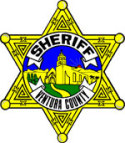Beware of the Reverse Lottery Scam!
/
VENTURA COUNTY SHERIFF
MEDIA RELEASE
Bob Brooks, Sheriff

Nature of Incident: Beware the reverse lottery scam, especially in this economy
Date: Nov. 26, 2008
Unit Responsible: East County Forgery / Fraud Unit
Narrative: Let’s face it; we would all like to win the lottery, especially in these difficult economic times. However, not all lotteries are created equal. Beware the letter or phone call explaining that you’ve won something, but have to pay taxes or a fee in order to claim the prize.
Avoid answering any letters or calls originating from outside the United States, especially Canada or Nigeria.
Advance-fee lottery scams are still a major problem. The letters and checks are arriving at your mailboxes right about now, just when you can least afford to give your money away to thieves. The targets are often people who can least afford to absorb the financial loss: the elderly.
The most common scam is the phone call from someone in Canada congratulating the unsuspecting victim that he or she has won a lottery. In order to claim the prize, the victim is told to wire $10,000.00 via Western Union to a person in Canada. The money covers the taxes, fees, and insurance the lottery officials require before shipping the winning check to the victim.
Another variation is a letter congratulating the lottery winner, along with a check made out to the victim. The letter asks the recipient to kindly deposit the $5,000.00 check into the bank, and then wire $4,000.00 back to the thief to pay taxes and fees. Then, the winner will receive the real prize.
By the time the victim realizes the check is worthless, he has already sent $4,000.00 of his own money to the suspect.
One thing people need to keep in mind is that there is no such thing as paying fees or taxes up front to claim any sweepstakes or lottery in the United States. If an offer seems too good to be true, then it is very likely a scam.
Many unsuspecting victims have drained their savings accounts and wired money to thieves in places like Canada and Nigeria. Many of the cases go unsolved because of the international scope of the transactions. The suspects often send professional looking paperwork to the victims that appear legitimate. They follow up with persuasive phone calls to lure victims into sending or wiring money.
The website for the Federal Trade Commission (www.ftc.gov) provides a wealth of information for consumers about a variety of fraud schemes, including international lotteries. According to the FTC, it is actually a violation of federal law to participate in a foreign lottery via the mail or by telephone.
Additional information can be obtained from the website of the United States Secret Service, www.secretservice.gov, which contains information regarding the advance-fee fraud scheme.
Officer Preparing Release: Detective Eric Buschow
Follow-up Contact: Detective Eric Buschow (805) 494-8226 / (805) 947-8129
Approved by: Capt. Bruce Watlington
Date of Release: Nov. 26, 2008

